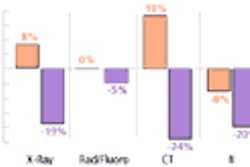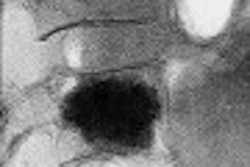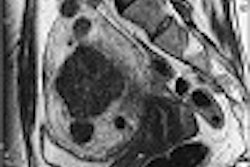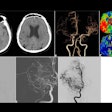A study conducted by Stanford University Medical Center researchers in Stanford, CA, concludes that stereotactic radiosurgery is feasible for the treatment of locally advanced pancreatic cancer. The study was published in the International Journal of Radiation Oncology and Biological Physics (Vol. 58:4, pp. 1017-1021).
The researchers examined the impact of delivering CyberKnife (Accuray, Sunnyvale, CA) radiosurgery to patients with locally advanced pancreatic cancer. The goal was to achieve local control of the tumor, defined as preventing the growth of the pancreatic tumor, without significant side effects from the radiation dose.
Subsets of patients were treated with three different radiation doses: 15 Gy (three patients), 20 Gy (five patients), and 25 Gy (seven patients), in a single treatment session using the Accuray product. Patients were then assessed over a 12-week period for toxicity from the radiation and for growth of their tumor.
In all patients treated with the 25 Gy dose, the pancreatic tumor stopped growing or decreased in size, achieving the goal of local tumor control. With the lower doses of 15 Gy and 20 Gy, some patients had continued growth of their pancreatic tumor. The authors concluded that radiosurgery is feasible for patients with locally advanced pancreatic cancer, and local control can be achieved at 25 Gy, according to Accuray.
By AuntMinnie.com staff writersMay 26, 2004
Related Reading
Accuray unveils new applications, October 21, 2003
Accuray wins $17 million Japanese contract, July 18, 2003
Accuray inks five U.S. contracts, March 12, 2003
Accuray inks Asian distributor agreement, November 12, 2002
Accuray gets $42 million in orders, July 26, 2001
Copyright © 2004 AuntMinnie.com



















